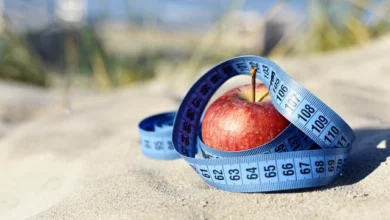Balanced Diet for Different Lifestyles: Tailoring Nutrition for Athletes, Professionals, and Seniors

Maintaining a balanced diet is crucial, yet it is often misunderstood as a one-size-fits-all concept. Every life stage and lifestyle, from athletes to professionals to seniors, has distinct nutritional needs. This guide explores how to adapt healthy eating to suit different lifestyles and ensure that everyone can meet their nutritional goals effectively.
Understanding Balanced Diets
A balanced diet is more than just eating the right foods; it’s about nourishing your body with the proper nutrients, in the right quantities, and at the right times. It is fundamental to health, vitality, and well-being, affecting how we feel, perform, and age. You might wonder, what exactly constitutes a balanced diet? According to Healthline, it involves a variety of foods that provide a wide range of nutrients to support bodily functions.
Core Components of a Balanced Diet
The core of a balanced diet rests on a foundation of macronutrients and micronutrients. Macronutrients like carbohydrates, proteins, and fats are the body’s primary energy sources. Carbohydrates fuel your daily activities, proteins repair and build tissues, and fats support cell function and protect organs. According to UW Health, these nutrients are vital in enhancing performance, whether on the field or in everyday life.
Micronutrients, such as vitamins and minerals, are equally crucial, though needed in smaller amounts. They facilitate energy production and immune function, among others. Balancing these nutrients across meals can be likened to tuning an orchestra; each section must harmonize to create a beautiful symphony.
Nutritional Needs for Athletes
Athletes, whether amateur or elite, have specific dietary needs tailored to their training and performance goals, which can be significantly different from those of the average person.
Carbohydrate Loading for Endurance
Carbohydrates are the kingpin of energy fortification for athletes. NHS Inform recommends including healthy sources such as whole grains and fruits to sustain energy levels. For those engaged in endurance sports, carbohydrate loading is a strategic way to maximize glycogen stores, which might be the difference between triumph or fatigue.
Protein for Muscle Recovery
Proteins are the body’s building blocks, essential for muscle recovery and growth post-workout. Consuming protein-rich foods or supplements within a short post-exercise window helps repair muscle fibers, enhancing recovery and future performance. BetterHealth provides further insights on this.
Hydration Strategies
For athletes, hydration isn’t just about quenching thirst; it’s a crucial part of maintaining performance levels. Dehydration can severely hamper abilities and can even be dangerous. Athletes should not only focus on drinking water but also include electrolytes to replenish what is lost in sweat.

Nutrition for Busy Professionals
Busy professionals can often find themselves compromising their nutrition for convenience, yet doing so can lead to decreased productivity and health issues.
Meal Prep for Success
Meal prepping is a lifesaver for professionals constantly on the go. By planning and preparing meals in advance, such as on weekends, professionals can ensure they have access to healthy, home-cooked meals every day. This not only saves time but also reduces the temptation to opt for less healthy, fast-food alternatives.
Healthy Snacking Options
Snacking wisely can be a real game-changer in maintaining energy throughout a hectic day. Choosing snacks like nuts, yogurt, or fruit can provide sustained energy and stave off hunger pangs without unhealthy processed sugars. A little forethought can make snacking a powerful ally in maintaining a balanced diet.
Tailoring Nutrition for Seniors
As we age, our nutritional needs change, making it vital to adjust our diets to maintain health and vitality.
Focus on Nutrient-Dense Foods
Seniors need fewer calories but more nutrients per calorie, making nutrient-dense foods essential. Think of it like getting the most bang for your buck. Foods like leafy greens, berries, beans, and lean proteins provide essential nutrients without the added calories.
Maintaining Muscle Mass
Muscle mass naturally declines with age, but a combination of protein intake and strength training can help prevent this. Even lightweight training can make a significant difference in maintaining muscle mass and overall mobility and balance.
Hydration and Health
Seniors may experience a reduced sense of thirst, but staying hydrated is crucial for bodily functions and avoiding health issues like urinary tract infections. Drinking water regularly, even without feeling thirsty, is vital.
FAQs
- What makes a diet “balanced”? A balanced diet includes a variety of foods that provide adequate energy, proteins, fats, vitamins, and minerals tailored to individual needs and lifestyles.
- Why is nutrition important as we age? As metabolism slows and nutrient absorption changes, focusing on nutrient-dense foods becomes crucial to maintaining muscle, bone health, and energy levels.
Conclusion
Crafting a balanced diet that aligns with your lifestyle isn’t just about following guidelines; it’s a tailored journey. Whether you’re an athlete pushing the limits, a busy professional juggling responsibilities, or a senior focusing on staying healthy and active, understanding and applying these nutritional insights can transform your life. Let your diet be as unique as you are, a tailor-made suit to fit your life’s ever-changing needs.
Consider your unique lifestyle and nutritional needs, and start crafting your balanced diet today to nourish both body and mind for a healthier tomorrow.





One Comment